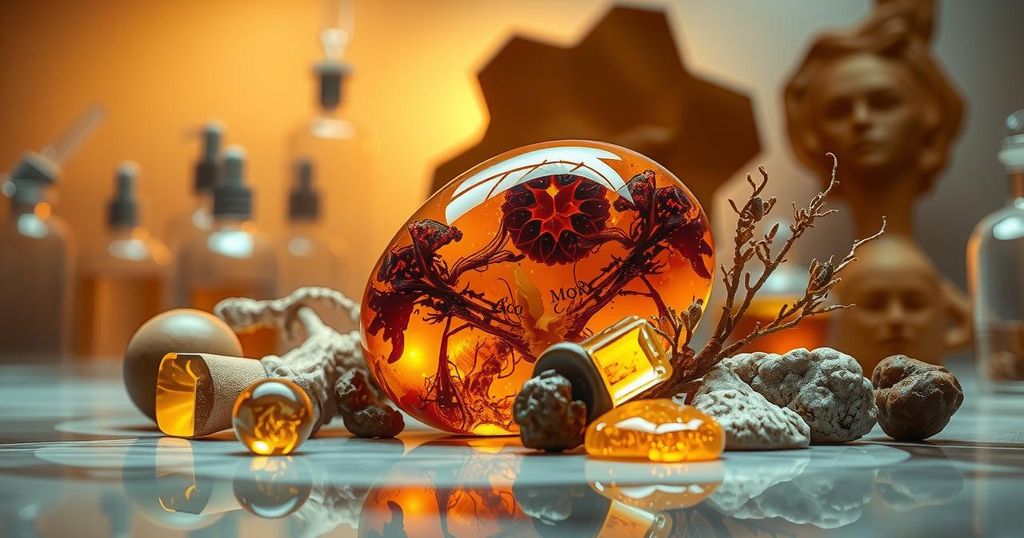Revolutionizing DNA Storage: MIT’s Amber-Like Polymer Breakthrough
MIT researchers have developed a glassy, amber-like polymer that allows DNA storage at room temperature, overcoming the limitations of current freeze-based methods. The polymer protects DNA from environmental damage, facilitating easy access for future analysis. This innovation may reshape how digital information is stored, particularly in personalized medicine and genetic research.
Inspired by the spectacular world of “Jurassic Park,” MIT researchers have created a new amber-like polymer designed for long-term DNA storage. Unlike traditional methods that require freezing, this innovative polymer allows DNA to be stored at room temperature, safeguarding it from heat and moisture. The researchers successfully stored diverse DNA sequences, demonstrating the polymer’s capability to protect vital genetic information over time without compromising integrity.
The need for DNA storage solutions that do not rely on energy-intensive freezing techniques is becoming increasingly critical. DNA serves as an excellent medium for dense information storage—potentially more efficient than traditional digital storage. The researchers’ pursuit led them to develop a thermoset polymer that not only facilitates DNA preservation but also enhances accessibility, paving the way for future applications in personalized medicine and data storage.
The breakthrough in DNA preservation using the amber-like polymer not only overcomes the limitations of freezing methods but also opens new avenues for digital data storage. With potential future applications in genomic research and personalized medicine, this technology represents a significant step toward revolutionizing how we store and retrieve our genetic heritage. As technology evolves, so too does the promise of uncovering greater secrets held in our DNA.
Original Source: news.mit.edu




Post Comment